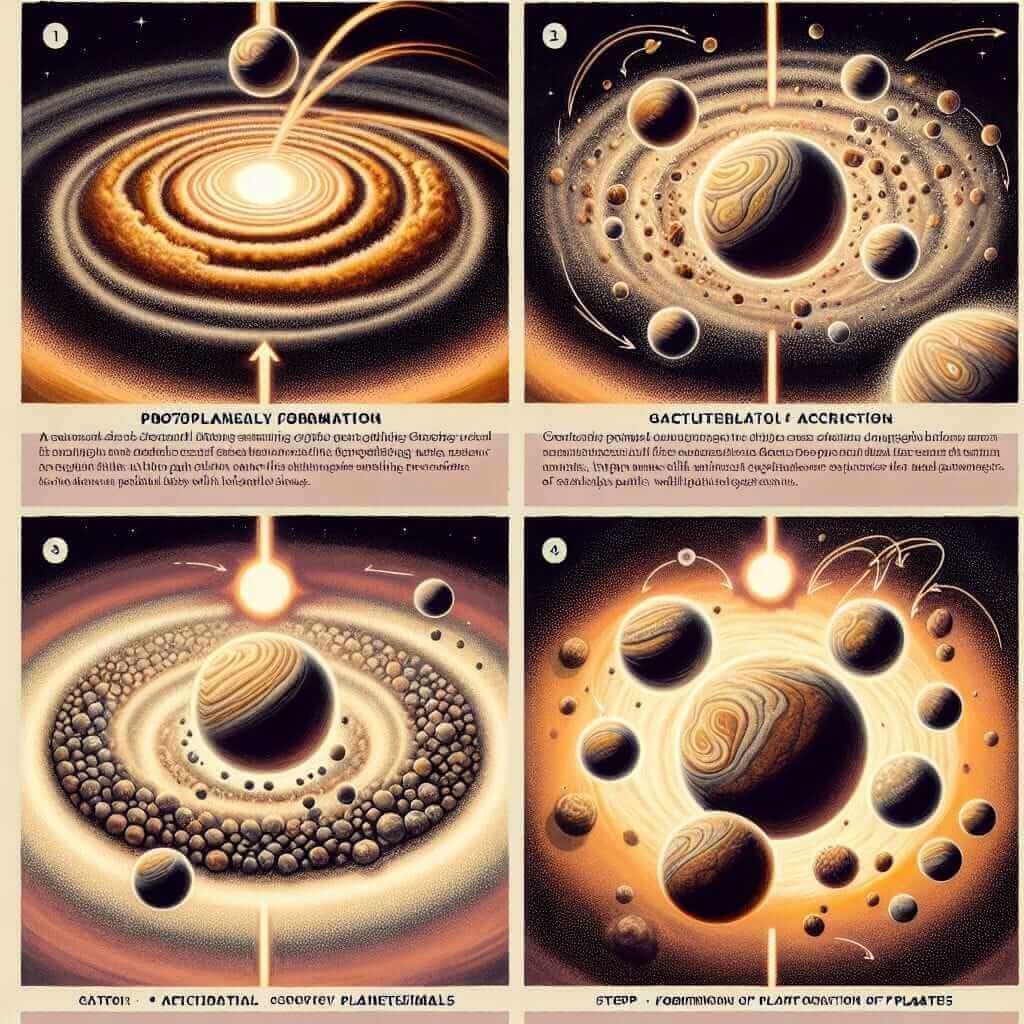As an IELTS instructor with over two decades of experience, I often encounter students who feel overwhelmed by the Reading section, particularly passages like “How Planet is Made.” This topic, often featuring in the Academic IELTS, can appear dense with complex vocabulary and scientific concepts. However, fear not! This guide will equip you with the knowledge and strategies to confidently tackle such passages and achieve your desired band score.
Understanding the Terrain: Why “How Planet is Made” Appears in IELTS Reading
The IELTS Reading test assesses your ability to comprehend complex texts and extract relevant information efficiently. Passages about the formation of planets, geological processes, or astronomical phenomena are chosen because they:
- Test your comprehension of challenging vocabulary: You’ll encounter scientific terms related to geology, astronomy, and physics, pushing you to deduce meaning from context.
- Assess your ability to understand complex ideas: These passages explain intricate processes, requiring you to follow arguments, identify cause-and-effect relationships, and synthesize information from different parts of the text.
- Evaluate your skimming and scanning skills: Finding specific details amidst a wealth of information is crucial. These passages demand effective skimming and scanning techniques.
Deconstructing the Passage: Strategies for Success
1. Pre-reading Preparation: Familiarize Yourself
Don’t let unfamiliar terms become roadblocks. Before diving into the passage:
- Preview the text: Quickly scan headings, subheadings, and any diagrams or illustrations to get a general idea of the content.
- Activate prior knowledge: Think about what you already know about the formation of planets, even if it’s basic. Every little bit helps.
- Jot down relevant vocabulary: If you encounter unfamiliar terms during your preview, note them down and try to guess their meaning based on context.
2. Active Reading: Engage with the Text
- Focus on understanding, not memorizing: Your goal is to grasp the main ideas and their logical flow. Don’t dwell on memorizing every detail.
- Use keywords to guide you: Pay attention to keywords related to the formation of planets, such as “accretion,” “gravity,” “solar nebula,” “tectonic plates,” etc. These words act as signposts, guiding you to relevant information.
- Make connections: As you read, constantly relate new information to what you already know or have read earlier in the passage. This helps build a cohesive understanding.
3. Answering Questions: Precision is Key
- Read the questions carefully: Understand what information the question is asking for. Is it a specific detail, a summary, or an inference?
- Scan the text for keywords: Use keywords from the questions to quickly locate the relevant sections of the passage.
- Pay attention to synonyms and paraphrasing: The passage and questions will often use different words to convey the same meaning. Be aware of this and don’t rely solely on matching exact words.

Example from IELTS Reading
Passage Extract:
“The prevailing theory for planet formation is the nebular hypothesis. It posits that planets form from a disk of gas and dust surrounding a young star, known as a protoplanetary disk. Gravitational forces cause particles to collide and stick together, gradually increasing in size. Over millions of years, these clumps attract more material, eventually forming planets.”
Question:
What is the primary force responsible for the accumulation of matter in planet formation?
Answer:
Gravity
Tips for Improvement
- Regularly read scientific articles: Familiarize yourself with the language and style of scientific writing. National Geographic, Scientific American, and New Scientist are good starting points.
- Practice summarizing complex texts: After reading an article, try to summarize the main points in your own words. This helps improve comprehension and information synthesis.
- Time yourself: IELTS Reading is time-bound. Practice reading and answering questions under timed conditions to simulate the exam experience.
Conclusion
Mastering “How Planet is Made” and similar IELTS Reading passages requires a combination of vocabulary building, active reading strategies, and focused practice. By consistently applying the techniques outlined in this guide, you’ll enhance your comprehension skills, boost your confidence, and be well-prepared to achieve success in your IELTS exam. Remember, consistent effort is key!